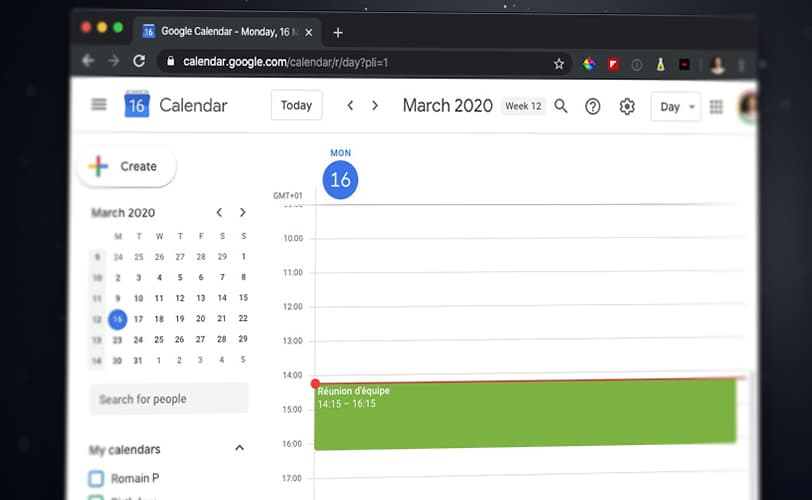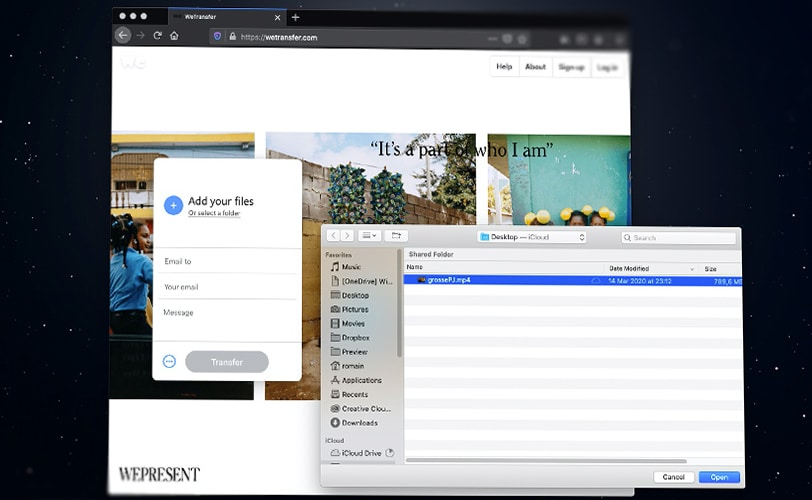In forced telework because of coronavirus? This kind of organization has been developing for two decades thanks to the internet, and there are now many tools to organize your work remotely.
For us who use it often, telework is not really a problem. And there is no reason why it should be otherwise for you, provided you organize your work well around suitable tools. We therefore offer you our selection of applications and services that are as simple as they are essential!
Contents
Google Sheets, Framacalc, Trello, Slack…: organize your team work

Your first objective is to organize your team work, otherwise you will step on your feet. For this there are several more or less sophisticated tools. They can be divided into two categories: simple but effective spreadsheets / tables, and collaborative platforms, more complex, but complete.
Slack – the most complete option (but not necessarily the simplest)
In this second category, we can speak of Slack, an extremely popular platform. And for good reason: Slack allows you to do almost everything in a centralized place. You can organize your work in the form of chains around dedicated hashtags.
The platform also allows you to share files, discuss, organize meetings. You can also connect a lot of services to it to make it a tool perfectly suited to your workflow. The problem with Slack is that if you and your teams have never used it, you will probably need some adaptation or training time.
If like many companies you had to find solutions urgently, we advise you to opt for separate and dedicated tools that are more like what your teams are used to using.
Google Sheets, Framacalc – the easiest option to collaborate
Google Sheets and Framacalc are completely free cloud spreadsheets. The difference between the two is that Google Sheets is owned by Google, while Framacalc is managed by an association.
Our advice is to create a new table in which each employee will put their initials in a first column. In the second column it will be a question of putting a title for each task.
In the following columns you can for example put three check boxes by the employee: one when the work is in progress, one when the task is finished and a last in case of refusal or problem.
Trello – organize tasks as cards
Trello is another collaborative tool that allows you to organize work in the form of tables. Each task creates a “map” that you can move to other columns. For example, you can put the to-do items in a “To-do” column.
While putting three other columns “In progress”, “Completed” and “Refused / problem” in which the employee will move the cards to indicate the progress of his work.
Google Calendar, Framagenda: collaborate on a common calendar

What if you have a common calendar? This can allow you, for example, to set deadlines , mark the start of project implementation to follow the duration, indicate a schedule, or even help better manage the departures, leaves and illnesses of your teams.
Both Google and Framasoft allow you to create collaborative calendars, in other words calendars that you can share with your colleagues so that everyone can add / remove entries in the common calendar.
Skype, Hangouts, WhatsApp, Wire: communicate with your colleagues

What to do now to communicate directly with your colleagues? To optimize the best working days, it is advisable to open a central chat in which everyone can chat live. Skype, Hangouts, WhatsApp, or even lesser-known apps like Wire make it very easy.
You can also organize several thematic chats based on specific projects, for example – and avoid the whole team wasting time with messages that don’t concern everyone.
WeTransfer, Dropbox, Google Drive, dl.free.fr: transfer large files

There are always too many of these attachments to pass through an email. In general, mail servers do not accept files that exceed between 20 and 25 MB depending on your provider. It is therefore necessary, if you want to send large attachments anyway to go through external services.
WeTransfer – for files up to 2 GB
WeTransfer offers free uploads of files up to 2 GB, all in an extremely simple and refined interface. To use it, simply go to the site, add your files, the recipient’s email, a message, then click on Transfer. It’s 100% free, but you can set a deadline of 12 € per month against which the file will be deleted, and protect the download with a password.
Dropbox – the swiss army knife of cloud storage
Dropbox offers storage up to 2 GB in free version. For businesses, it is possible with a subscription to benefit from several terabytes of storage. The cloud storage service is accompanied, unlike WeTransfer, by an application from which you can access your files almost as if it were a network hard drive.
Google Drive – the one we no longer present
Do you have a Gmail address? Then you already have a Google Drive account. It is probably this simple fact that will lead many players to opt for Google Drive as soon as they want to transfer files. Especially since in free version, Google Drive does not offer 2 GB but 15 GB since 2011, which is still more comfortable. Like Dropbox, the service is available via your browser, or a dedicated application.
dl.free.fr – the free service that you would be wrong to forget
Did you know that Free has offered a free file sharing service for years? The advantage of this solution is that it is possible to transfer files of 10 GB at once by FTP, with the software of your choice (for example Cyberduck).
Do you use tools that are not mentioned in this list on a daily basis? Do not hesitate to tell us in the comments!
